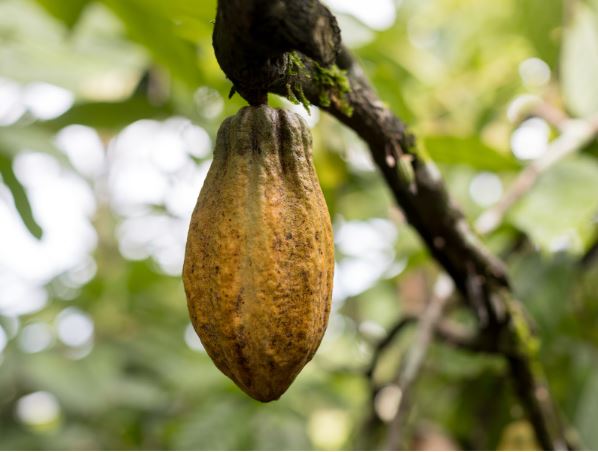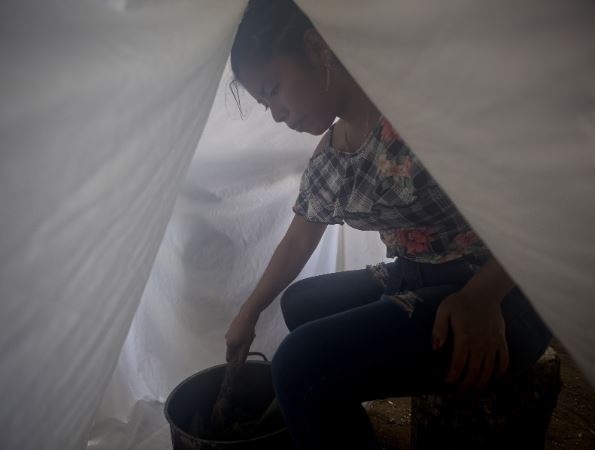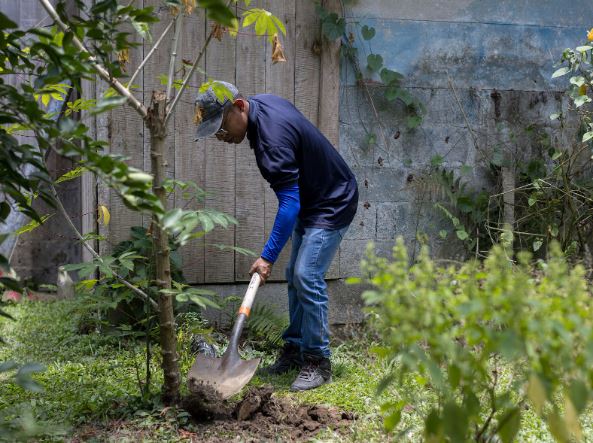ASOETEBRI: Indigenous knowledge to care for the forest

The community of Amubri is at the foot of a forest that is impossible to behold in its entirety: the La Amistad International Park shared by Costa Rica and Panama. It is one of many communities that inhabit the Bribri Indigenous People.
Life bursts forth from the soil with ease; wherever you look, there are yards filled with fruit trees and tubers: cacao, cassava, bananas, and ñampí. The more trained eyes can also see a large number of medicinal plants in those same gardens around the houses. However, not everyone in the community can recognize or name them.
This gap in knowledge among the new generations motivated the Association of Entrepreneurs of the Bribri Territory (Spanish acronym: ASOETEBRI), part of the Bribri and Cabécar Indigenous Network (Spanish acronym: RIBCA), to implement a series of workshops on food security to preserve and transmit Indigenous knowledge.
Studying the yard and the mountain
Ema Sánchez and Eufrasia López walk through the courtyards of the houses searching for plants to prepare a steam treatment. Ema is a 30-year-old young woman trying to connect more deeply with her roots, while Eufrasia, the elder, shares her knowledge about the plants. For the preparation they need to make, they look for medicinal leaves that they will cook in boiling water so that the steam helps clear or open the respiratory passages for the sick person.
Eufrasia tells Ema the name of each plant and explains in Bribri what it is used for. Ema doesn’t speak Bribri but understands it, and she is increasingly interested in absorbing everything she can about her own culture. That’s why she enrolled in the food security workshop held by ASOETEBRI once a month.
The association was born from the collective need to strengthen the businesses of the 62 founders who belong to 11 communities in the Bribri territory. Its purpose is to provide support to entrepreneurs in selling their products and offering training through workshops like the one Ema attends.

In this workshop, a group of elders gathers to share their knowledge about medicine, recipes, and traditional ingredients of Bribri Indigenous culture with a group of young people interested in reconnecting with their roots.
“The association invites an elder, suggests a topic to develop, and this person leads a conversation in the same way their ancestors have transmitted their knowledge,” explains Elieth Salazar, a member of ASOETEBRI.
These gatherings have been very helpful for participants to learn which foods or plants can be grown in their yards and which ones can only be found in the mountains. They also clarify doubts and myths about which plants could be medicinal but do not belong to Bribri culture.
“I feel like a pure Indigenous person because my dad is Bribri and my mom is Bribri, but I feel like a stranger in my own land because I don’t speak the language. In the workshops, I have learned new things—things I was completely unaware of about my culture,” comments Ema.
Investing in ancestral knowledge is caring for the forest
Eufrasia and Ema return with a basket full of plants and roots to the ranch where they receive the workshops to finish preparing the steam treatment.
Until very recently, the workshops began to be held in this location, and the association has been gradually learning how to carry out its projects. For this first workshop, they decided to focus on preserving their worldview.

“We provide support to the members so they can come to the workshop, and we try to cover the necessary expenses because our members are from here and from somewhat distant communities. Some have to cross up to two boats and three buses. We try to help them with transportation and also with food,” explains Elieth.
The project, supported by the Mesoamerican Territorial Fund (MTF) of the Mesoamerican Alliance of Peoples and Forests (Spanish acronym: AMPB), directly benefits approximately 48 members and indirectly over 150 people.
“We participated in this FTM competition, and it has helped us strengthen various aspects: institutional, administrative, motivation for the members, and it has helped provide a very important cultural workshop for us,” comments Elieth.
The association received a fund of $19,000 to strengthen and reinforce food security through the promotion of ancestral seed production over six months.
Tatiana Martínez, coordinator of RIBCA, asserts that Indigenous communities have demonstrated their ability to manage and execute funds, often going far beyond what the cooperation requests.
“We have even done much more work than what we set out in the projects, and I believe that is one of the great achievements of Indigenous peoples: always turning a resource into a multiplier for other opportunities, which generates a greater impact in the territories,” emphasizes Tatiana.

Other participants and members of the association believe that preserving their culture is a direct way of protecting the forest. Randy is one of them.
“Within our history, Sibö (God) left us as protectors of nature, as the first line of defense for everything we have here. So that is our main objective as Bribri Indigenous people; if one protects the culture, one is also fulfilling a duty or an obligation, we could say that we have as Indigenous people, which is to take care of nature,” Randy explains.
Both Elieth and Emma hope that in the future, there will be more classes dedicated to Bribri culture and language preservation, and that the workshop is just the first step, leading them to become the elder women who later share their knowledge with new generations.
“What motivates me is the ignorance I have of my own culture at my age. The people who know about the culture, traditions, our stories, customs, and language are elderly, and we don’t know how much longer they’ll be with us in this world. Now is the right time to take advantage of that, and I know that there are many other people who are still motivated to recover it,” says Elieth.
